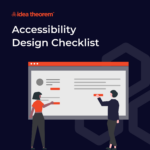Development & Engineering
Navigating Choices Between Native, Hybrid, and Cross-Platform Frameworks
14 Nov 2023
8 mins read


In the bustling world of mobile technology, the choice of the development framework holds substantial weight in crafting successful mobile applications. The decision between Native, Hybrid, and Cross-Platform frameworks shapes the app’s performance, functionality, and scalability, impacting the overall user experience
Understanding Native, Hybrid, and Cross-Platform Development

Native apps are built specifically for a single platform, utilizing programming languages and development tools native to that platform, such as Swift or Objective-C for iOS and Java or Kotlin for Android. They leverage the platform’s capabilities fully, offering high performance and a seamless user experience but require separate development efforts for different platforms.
Hybrid apps blend elements of both Native and Web applications. They are built using web technologies like HTML, CSS, and JavaScript, encapsulated within a native wrapper. While easier to develop and deploy across multiple platforms, they might lack performance compared to Native apps due to the intermediary layer.
Cross-Platform frameworks streamline development by allowing the creation of a single codebase that runs across multiple platforms. These frameworks, like React Native, Flutter, or Xamarin, enable developers to write code once and deploy it across various platforms, balancing efficiency with native-like performance.
Key Considerations in Framework Selection

Several factors influence the choice between Native, Hybrid, or Cross-Platform development. Considerations include the app’s complexity, target audience, performance requirements, time-to-market, development cost, access to native APIs, and the need for platform-specific user experiences.
Advantages and Challenges of Each Framework
Native apps excel in performance and offer seamless integration with the platform’s features, providing the best user experience. However, they require separate development efforts for each platform, increasing time and cost.
Hybrid apps offer quicker development and deployment across multiple platforms but might compromise performance and user experience due to the abstraction layer.
Cross-Platform frameworks strike a balance between efficiency and performance, allowing code reusability across platforms. While providing faster development and cost-efficiency, they might face limitations in accessing platform-specific features or delivering exact native experiences.
Selecting the Right and Best Framework for Mobile Apps
The choice between Native, Hybrid, or Cross-Platform frameworks hinges on project requirements and trade-offs between development time, performance, scalability, and user experience. Evaluating factors like app complexity, target audience, time constraints, and desired platform integration aids in making an informed decision.
Future Trends in Mobile App Development
The landscape of mobile app development continues to evolve. Emerging trends include advancements in Cross-Platform frameworks, refining their performance and capabilities to bridge the gap between Native and Cross-Platform development. Additionally, the integration of AI and AR/VR technologies into mobile apps opens new avenues for innovation and immersive user experiences.
Conclusion: Navigating Framework Choices

In conclusion, the decision between Native, Hybrid, or Cross-Platform frameworks significantly influences the success of a mobile app. Each framework offers a unique set of advantages and challenges, demanding a careful assessment of project requirements, scalability, and user expectations to determine the most suitable approach for app development.
What’s Next
Idea Theorem is an award-winning Software Development Company headquartered in North America, specializing in Mobile App Development, Web Design and beyond. Through a user-centric approach, we’ve meticulously crafted digital solutions.
Our dedication is to pioneer the digital frontier by delivering exceptional solutions. Contact us to know more; we’re here to guide you through the development journey.
—





